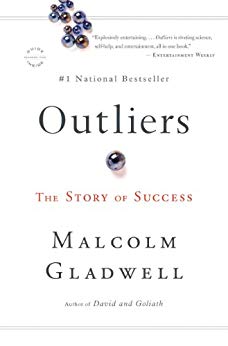

This article is an excerpt from the Shortform summary of "Outliers" by Malcolm Gladwell. Shortform has the world's best summaries of books you should be reading.
Like this article? Sign up for a free trial here .
What is the threshold effect? How does it apply to intelligence and, ultimately, success in life?
Geniuses are outliers—they are outside the norm when it comes to intelligence. Higher intelligence certainly can lead to greater success. However, differences in achievement based on intelligence level out at some point. This is the threshold effect.
Read more to learn about the threshold effect in relation to intelligence and success.
Intelligence and the Threshold Effect
If outliers are people whose abilities and experiences are statistically far outside the norm, then geniuses are the ultimate outliers. We may understand that talent can only take you so far, but we place intelligence on a different plane than mere talent. We assume that the more intelligent you are, the more successful you will be.
However, just as with other personal attributes, IQ determines success only up to a certain point. After meeting the threshold of “smart enough,” differences in achievement based on IQ tend to level out.
The advantage of IQ can be likened to the advantage of height on a basketball court. A 6’3” player has a clear advantage over a player who is 5’6”. But a player who’s 6’3” and a player who’s 6’5” are probably pretty equally matched. When the height difference is so small, other factors, such as speed, agility, and strength, more heavily impact success.
It turns out that their IQ does not make some geniuses outliers, although a high IQ helps. What truly turns someone into an outlier are the opportunities he’s offered.
The IQ Threshold
Again, it’s not that IQ is irrelevant—in order to handle college work, you probably need an IQ of just above 100 (100 is average). If you succeed in a graduate program your IQ is likely at least 115. The higher your IQ, the more money you’re likely to make and the longer you’re likely to live. It’s just that beyond a certain point (an IQ of 120), opportunity matters more.
This is called the “threshold effect”: Once you hit a threshold and you’re “smart enough,” then opportunity plays a larger role in determining your success.
The University of Michigan Study of Affirmative Action Success
A study at the University of Michigan reported that nonwhite students admitted to law school through affirmative action had lower grades both before and during graduate school, as compared to their white counterparts. If grades correlate with intelligence, the suspicion might then be that students with lower grades might have less success in their careers.
After law school, however, there was no discernable difference between the two groups of students in terms of various measures of success: salary, reported job satisfaction, rank in profession, social and community contribution, or honors won.
This finding disproved researchers’ initial expectation that the nonwhite students would not be doing as well in their law careers as their white peers. While the nonwhite students were admitted to the program with lower grades, their grades were still good enough to pass the threshold of what was required to succeed in law school and beyond. This is the threshold effect in action.
Why, then, do schools have such stringent academic requirements and low acceptance rates? The standards of competitive academic programs are not as high as they are because the students they reject, who are performing slightly below the standards, wouldn’t be successful there. The standards are high because there’s simply not enough room for all eligible students.
Affirmative action evens the academic playing field by opening doors to students who may not have received as many early opportunities as their white peers, yet who are still fully capable of meeting the program’s requirements.
———End of Preview———

Like what you just read? Read the rest of the world's best summary of "Outliers" at Shortform . Learn the book's critical concepts in 20 minutes or less .
Here's what you'll find in our full Outliers summary :
- What makes some people outliers, and most others not
- Why some genius outliers end up failing in life
- Why Asians are good at math, and other curiosities of culture






